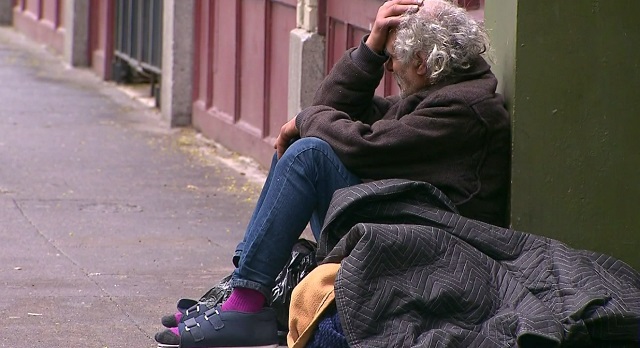Editor’s Note: This is the final story of “The Unsheltered Truth” a 5-part series from Jeff Gianola on homelessness in Portland.
SAN DIEGO, Calif. (KOIN) — Bob McElroy heads up Alpha Project in San Diego, which he describes as “an empowerment program, not an entitlement program” to deal with their city’s homeless population.
“It’s an intake triage and assessment,” McElroy told KOIN 6 News. “We have all the services here for everybody.”
Alpha Project is inside a huge pre-fabricated building housing San Diego’s homeless men and women. McElroy said they’re “safe, they have central heating and air conditioning. They are far more cost-effective than building a new structure or warehouse.”
But it’s more than a homeless shelter. The intake assessment process helps determine what services — mental, physical, rehab — each person will need. “They do everything. Case managers, housing managers,” he said.
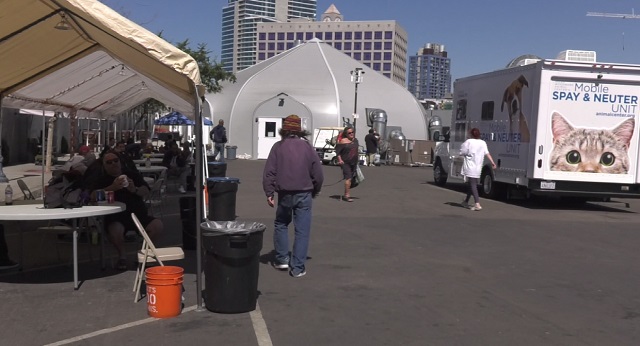
When a deadly hepatitis A outbreak hit San Diego’s homeless in 2017, Alpha Projects launched a massive staging area where homeless people can be registered, assessed and evaluated with health and social services all on site.
Everyone who enters is treated with respect — and given responsibility.
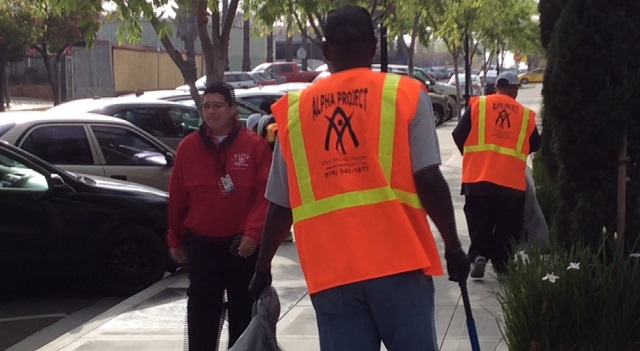
“I don’t clean this facility up,” McElroy said. “The people who live here do. I tell them, ‘This is your house. If you abuse it we are going to lose it.'”
Homeless people there are given time to stay, to get their lives back on track.
“People have 120 days,” he said. “Everybody here is mandated to work with a case manager or housing navigator.”
The shelter opened in December 2016 and within weeks, tents and tarps began to disappear from the streets of San Diego.
“We literally had hundreds and hundreds of people in tents and tarp towns, Skid Row, living in squalor,” McElroy said. “People ask me all the time why this place is so clean. Now, people have hope. When you’re out there in the squalor, who gives a damn where I put my trash?”
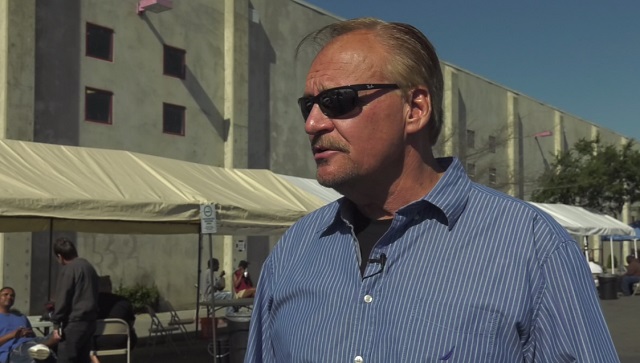
Many of the homeless are in legal trouble. At Alpha Projects they can get a new start.
“We actually do Homeless Court here,” he said. “You get that one get-out-of-jail-free card…now, get with us, get with the program and let’s get busy with trying to get you out of here and into a better place.”
There is also a plan to help get the homeless to their final place.
“We have the only hospice program for homeless people in the state of California,” he said. “They cannot be homeless and receive hospice services. Hospice can’t bring services to the street and help people. You have to be in a fixed structure…We can do that here.”
It’s all paid for with private money.
San Diego businesses saw what was happening and jumped on board. McElroy’s blunt message to them also got the point across: “Do it or get off the pot. Now is your opportunity to get in here and get busy.”
Could this work in Portland?
Portland developer Homer Williams started Harbor of Hope. Columbia Sportswear president and CEO Tim Boyle $1.5 million for a structure to be erected near the west end of the Broadway Bridge.
“They’re the structures that you see in San Diego right now,” Williams said. “They’re attractive, cost-effective and can be installed in 6 weeks.”
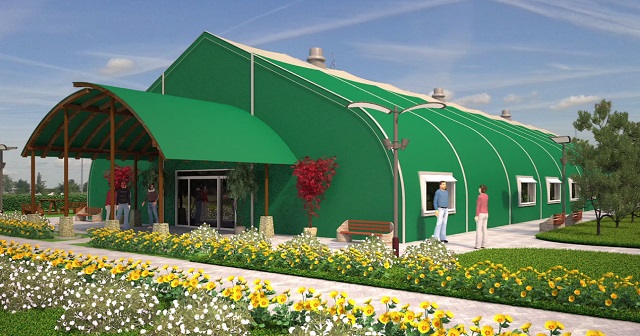
Williams said it will be Portland’s homeless navigation center for 120 people, providing most of the same services as San Diego’s Alpha Project. It will be all in one location and all donated by Portland businesses.
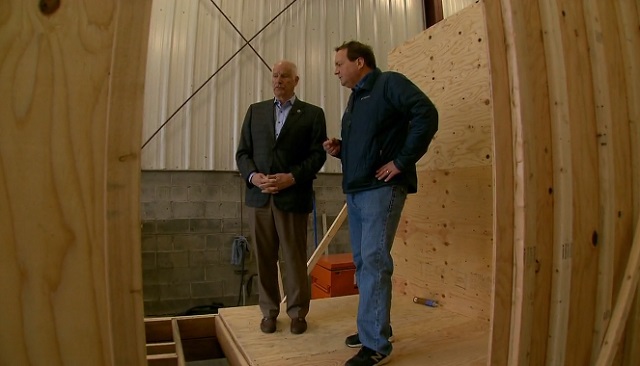
David Thompson, the owner of TEC Equipment, and others are donating and building a mobile shower and laundry truck for Harbor of Hope. Thompson said it’s “an expensive project when we finish it. This will be very interesting. It’s worked in other cities. We’re going to give it a hard shot here in Portland.”
And he re-iterated there is “no taxpayer money. It’s all donated money.”
For Harbor of Hope to get final approval, they’ll have to overcome trust issues with nearby businesses and neighbors. But they can take a lesson from San Diego.
“No matter where you put something, you’re going to piss off somebody’s neighborhood. ‘I don’t want those people here,'” McElroy said. But near the Alpha Project “there’s 2 elementary schools within a block of each other. They are our biggest advocates because crime goes away. I hire every gang member in the neighborhood. We pick up all the trash. We make sure those children get to and from school safely. So we bring a resource to the neighborhood that didn’t exist before we got here.”
One big obstacle to bringing a San Diego-solution to Portland, according to Bill Russell of the Union Gospel Mission, is pride.
Watch: Greg Baker of Blanchet House offers his ideas for helping the homeless
“One of the downsides of Oregonians is we insist on being inventive in this area and we are reluctant to borrow a solution from other areas,” Russell told KOIN 6 News.
Is the homeless problem in Portland so visible that we’ve now accepted it? When we see the homeless do we really notice?
“Those people we look at and we don’t see who are they. They belong to us,” said Greg Baker, who heads up Portland’s Blanchet House. Baker wants all of us to look hard.
“They are our daughters, our sons or uncles and our cousins. That’s who they are. They’re not just people, nameless. They do have names. They belong to people.”
And that is The Unsheltered Truth.
